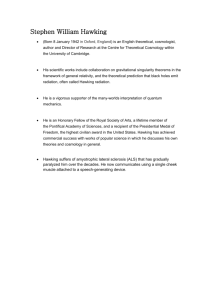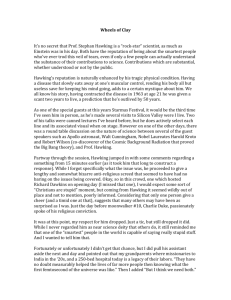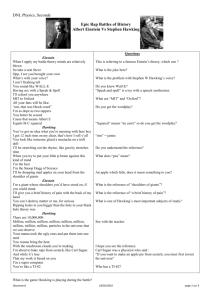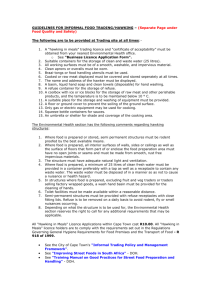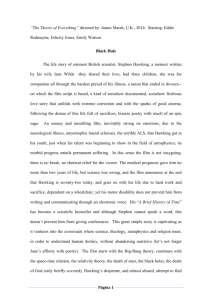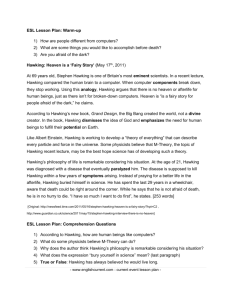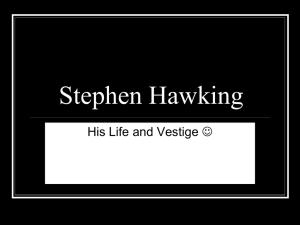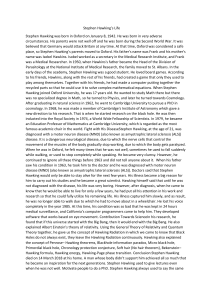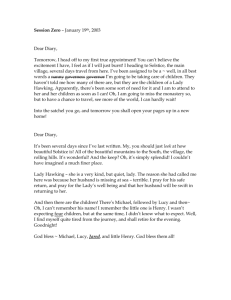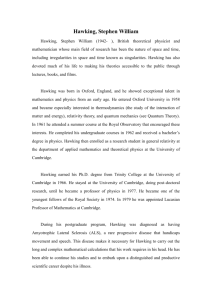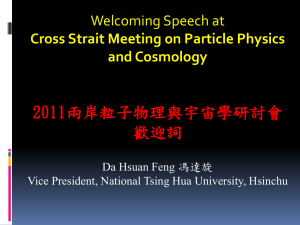Document
advertisement
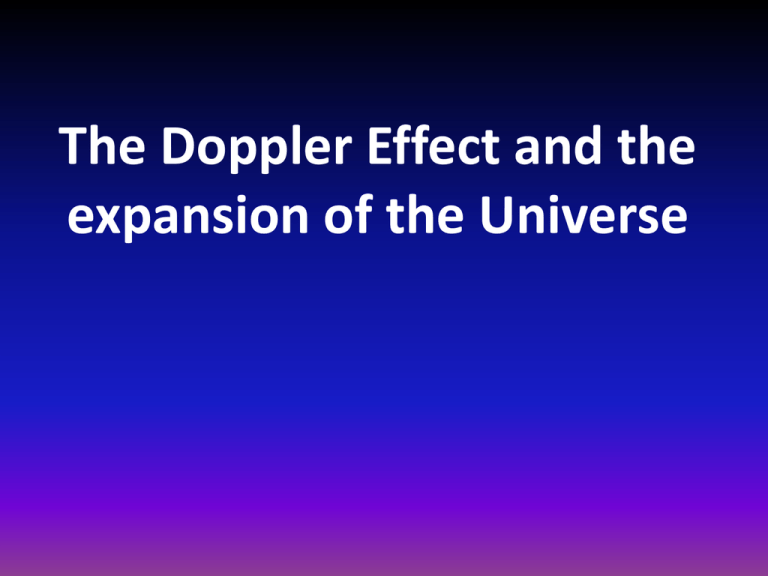
The Doppler Effect and the expansion of the Universe 1. What do you know about renowned scientist Stephen Hawking? What is his field of expertise? In which university is he an honorary professor? Stephen William Hawking, January 8th 1942, is a British theoretical physicist. Hawking was a Professor at the University of Cambridge between 1979 and 2009. Hawking has achieved success with works of popular science in which he discusses his own theories and cosmology in general; his A Brief History of Time stayed on the British Sunday Times best-sellers list for a record-breaking 237 weeks. Hawking has a motor neurone disease, a condition that has progressed over the years. He is now almost entirely paralysed and communicates through a speech generating device. He married twice and has three children. 2. Comment on Hawking’s first sentences. 3. What is Hawking’s goal? → text 26 10 m This picture represents « the large web of galaxies ». The largest scale picture ever taken. Each of the 9325 points is a galaxy like ours. They clump together in 'superclusters' around great voids which can be 150 million light years across. 4. How is it possible to get some information about the chemical nature of the Sun or distant stars? (10th grade) Absorption lines in the spectrum of the light emitted by a star give us information about the chemical nature of a star. Solar spectrum The D1 and D2 lines form the well-known "sodium doublet“. 5. Explain the Doppler Effect (or Doppler shift). Does it affect sound waves exclusively? An increase (or decrease) in the frequency of sound, light, or other waves as the source and observer move toward (or away from) each other. The effect causes the sudden change in pitch noticeable in a passing siren, as well as the redshift seen by astronomers Absorption lines in the optical spectrum of a supercluster of distant galaxies (right), as compared to absorption lines in the optical spectrum of the Sun (left). Arrows indicate redshift. Wavelength increases up towards the red and beyond (frequency decreases). 6. What do cosmologists deduce from the Doppler redshift of galaxies? → Text 7. Explain how the expansion of the Universe leads to the Big Bang. → Text
